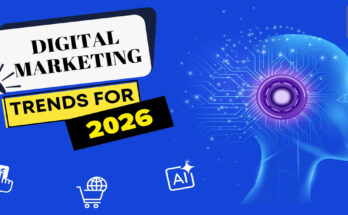Hollywood, and indeed the whole entertainment industry, has long remained the showpiece of advanced technology. From the visual effects in blockbuster movies to special CGI creations, technology has stretched the wings of creativity. Today, AI in Entertainment is one of the most dominant forces transforming the industry. Artificial intelligence has not just improved content creation but has rather changed the way it is consumed and experienced by audiences.
AI in Entertainment is changing the entire era of techno marvels that emerge where smart technology takes the lead-and that indeed runs in the middle of filmmaking, storytelling, and audience engagement. Whether in automatic production processing or the establishment of a personalized experience, revolutionizes Hollywood and makes it an unrealistic possibility.
AI in Entertainment: Transforming the Hollywood Experience
Hollywood welcomes all the tools, which boost their creativity and AI in, of course, falls within that. AI in entertainment is changing the way films are produced and consumed<moreover, it teaches how with filmmakers to tell their stories. In that way, while artificial intelligence is mostly assumed to refer only to robots and machines, Hollywood is anything but robotic—AI is helping to bring creativity to life in innovative ways.The most common ways AI is reshaping the entertainment world is by streamlining production processes. In the past, creating a film or TV show involved a lengthy and costly process. From scriptwriting to filming, editing, and visual effects, each step required a lot of manual labor. But with the help of AI, much of this can now be automated. For example, AI tools can assist in script analysis, identifying which parts of a script might need revision based on audience engagement data. AI algorithms can also predict which kinds of films are most likely to succeed at the box office, helping Hollywood studios make more informed decisions about what content to produce.
In post-production, AI in Entertainment is speeding up the editing process. Automated tools can sort through hours of footage, identifying the best takes and syncing them with sound. AI can even generate special effects, creating realistic simulations of weather, explosions, or creatures without the need for expensive CGI work. This technology has made filmmaking more efficient and accessible, even for smaller studios or independent filmmakers.
The Use of AI in Entertainment: Impacting the Industry Across the Board
The use of AI in entertainment is all-encompassing, going beyond production. It is affecting almost every aspect of the entertainment business. Here is an examination of some severe ways in which the entertainment industry is gaining the impact of AI.
Recommendations and Personalized Content
Make personalized recommendationsand AI algorithms analyze data to learn which genres, themes, or actors appeal to a viewer. AI removes the guesswork and simply presents options suited to your viewing tastes. This assists audiences in discovering content they might not have found out about. Instead of scrolling aimlessly to discover something to watch. Do not use AI for content creation recommendations ; they also use it to personalize their marketing. This personalization thus increases streaming platforms’ efficiency in captivating their audiences, and it also ultimately increases retention rates. The more AI learns about user preferences, the more it can tailor ads and promotional content for specific audiences.
AI in Scriptwriting and Storytelling
It is possible that we may reach a time when script writers will not have anything to do, making perfect scripts or screenplay for several years. Now it turns out that an AI can help writers analyze existing scripts for common successful themes and even successful plot structures to develop new stories. One example of this is ScriptAI, which uses machine learning to tell whether a script is generally going to succeed because of its structure and lines.
It can also be used to generate new dialogue and to predict how the audience will react to specific plot points or character arcs. However, with all this assistance, the writer will still have to make the careful finetuning of the end product since the actual creative process would always be human.
Bettering the Visuals Effects and Animation
Artificial intelligence is a moving revolution in the visual effects. For example, to create realistic even for a less than a minute segment would be the result of rigorous work from days to weeks, requiring manual labor and specialized software. These tasks now include automated color correction, enhancement of images, and sometimes CGI rendering aided by AI. AI programs working in collaboration with artists use an in-house software to analyze footage and apply real-time fixes to the image’s quality by detecting and repairing faults, including noise and distortion.
In animation, AI is used to bring characters to life through predicting gestures and movements, enabling animators to spend more time on the creative side. AI in animation has greatly simplified filmmakers’ tasks by obtaining high-quality, realistic-looking animations, which could usually be able to face their live counterparts.
AI in Music and Sound Design
The AI phenomenon is, however, busy making its waves rippled in some parts of the entertainment-violin, and sound design-as well. It has been used to create original compositions, design sounds for effects, and even master tracks. The algorithms do automatic learning by analyzing different styles of music. Then generating compositions based on those rules-which could be mood, style of sound, or tempo.
In sound design, AI is capable of automating creating background sounds, adjusting audio levels, and synchronizing sound effects with video. For example, a character walking through a scene in a movie may have ambient sounds like birds chirping and leaves rustling produced by the AI in real time.
Innovations in Technology: Paving the Way for a New Era in Hollywood
The effect which AI will have on Hollywood will increase as innovations in technology speed up development. One of the most exciting developments is that of AI-generated content. Even though it is already able to help create scripts as well as assist in the composing of music. If not shortly, in the very near future.AI may be able to autonomously generate whole films or TV shows. This may significantly lower production costs and allow for the production. Films or shows at a very low budget by independent creators.
The coming of Artificial Intelligence conjoined with virtual and augmented reality promises to revolutionize how an audience experiences entertainment. Imagine walking into a VR movie theater where you as an audience member can alter. The plot with your decisions or even engage with AI-powered characters in real-time. That type of interactivity would elevate storytelling into a completely new dimension.
Conclusion: The Future that AI Has to Offer to Hollywood
The story has only begun for AI in Entertainment in Hollywood. An ever-evolving technological innovation will continue to change the nature. In which films are created and consumed with AI taking precedence over scriptwriting, visual effects. In personalized content recommendations and interactive experiences.
Hollywood is on the verge of a new era with intelligent technologies. That enhances creativity, increase efficiency, and provides more customized experiences. The future holds further revolutionary changes as advancement in AI progresses.




